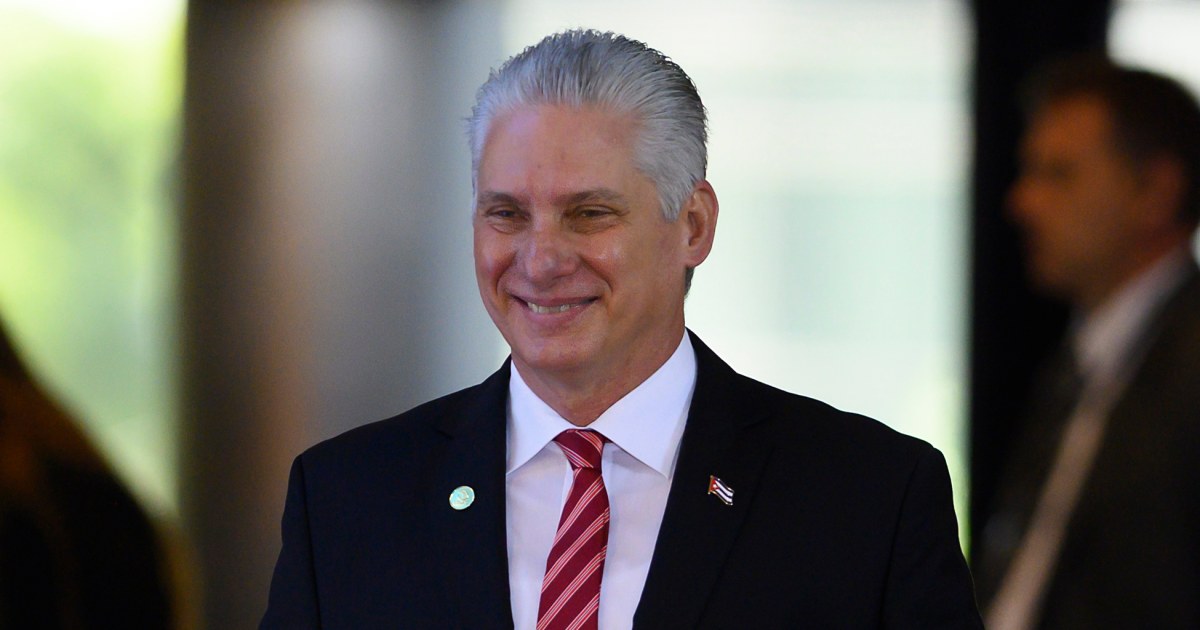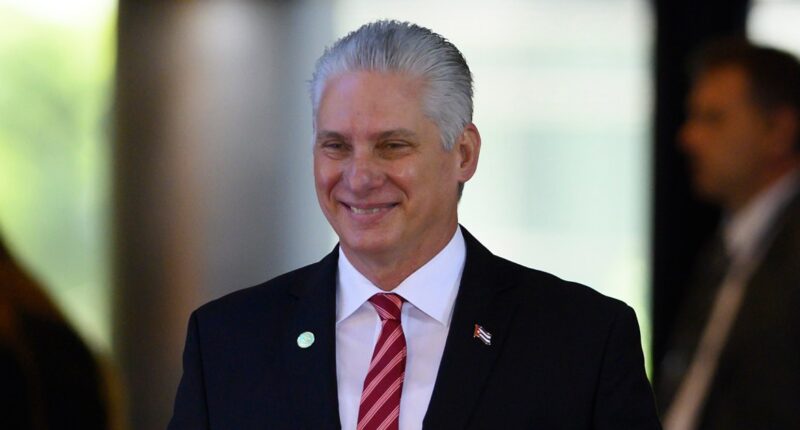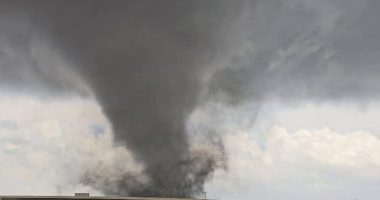
HAVANA — Cuban President Miguel Díaz-Canel is widely expected to be chosen this week by assembly lawmakers to lead the country for another five years, despite a rocky first term marked by the coronavirus pandemic and a near-unprecedented economic crisis.
Díaz-Canel, 62, heads the Communist Party, to which all 470-members of the legislature elected by Cubans last month either belong or are sympathetic to. Cuba argues its one-party system promotes unity and limits financial interference in the assembly elections.
The assembly will vote Wednesday to elect the country’s president and his cabinet. No candidate other than Díaz-Canel is seen as emerging for the presidency.
Once his next term is confirmed, Díaz-Canel will need to focus his efforts on overhauling Cuba’s economic system, said Carlos Alzugaray, an independent political analyst formerly from the diplomatic service.
“That is the great challenge that President Díaz-Canel now faces,” Alzugaray said. “Can he break with the inertia of his first term and its ideological rigidity in the interests of economic pragmatism?”
Díaz-Canel was elected in 2018, succeeding Raul Castro, brother of the revolutionary Fidel Castro who ruled the country from 1959 to 2008. He promised continuity with the brothers’ politics, though he passed a constitutional reform limiting the presidency to just two consecutive five-year terms.
Díaz-Canel will be looking to cement his legacy in his second term, but must effect the changes the country needs, Alzugaray said.
“We are going for more,” Díaz-Canel told journalists after casting his ballot in the legislative elections last month.
“When you have lived such an intense, emancipating and moving electoral process you have to give your all for this heroic and dignified people who deserve the greatest possible happiness.”
In his first term, Díaz-Canel faced a series of disasters — from the explosion of a hotel in central Havana and a fire at a crude oil depot in Matanzas, to hurricanes and the impacts of the pandemic.
He has also wrestled with sanctions imposed in 2018 on the country by then-U.S. President Donald Trump, piling onto a decades-long U.S. trade embargo.
The sanctions further weakened Cuba’s economy, and unprecedented numbers of Cubans have left the island in recent years. A record 220,000 Cubans were registered at the U.S.-Mexico border in fiscal year 2022, according to U.S. immigration numbers.
Shortages worsening
The economic backdrop to the election is grim. Annual inflation hit nearly 40% last year and shortages of fuel, electricity, food, medicine and foreign currency have been worsening.
Anti-government protests in July 2021 were the largest since the revolution. The president blamed the unrest on interference from the United States.
“Díaz-Canel’s term was problematic,” said Jorge Duany, director of the Cuban Research Institute at Florida International University.
“The crisis of the pandemic, the ongoing economic crisis, and above all else, perhaps the problem of legitimacy that was openly contested in the (July 2021) riots,” Duany said.
On the streets of Havana, supporters of Diaz-Canel said they had faith in his abilities to turn things around, however.
“Yes, we can trust him,” said 21-year-old law student Hugo Fuentes. “He has enough energy to head the country again, though he’ll need to refocus his efforts.”
Source: | This article originally belongs to Nbcnews.com










